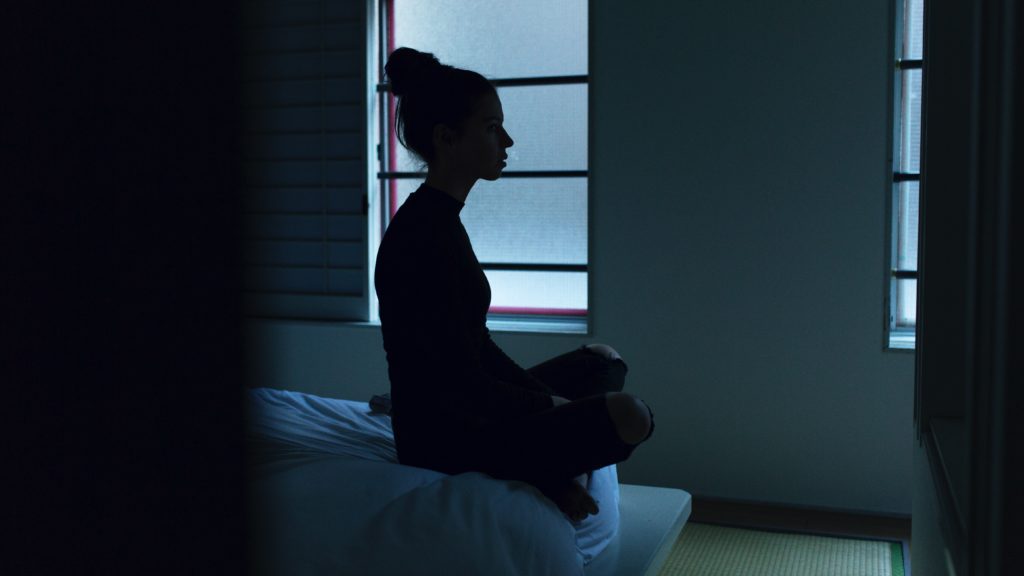Date of the last update: 27.12.2021
Insomnia affects an increasing number of people. Although sleep problems are not counted as diseases, they negatively affect the human body. There are natural ways to ensure sound and healthy sleep, and their power can heal the body, mind and soul.
Table of Contents:
- Insomnia – causes and classification
- Insomnia – symptoms
- Natural remedies for Insomnia
- Diet versus Insomnia
- Herbs for sleep disorders
- Aromatherapy for a good night’s sleep
- Meditation for Insomnia
You can read this article in 4 minutes.
Insomnia – causes and classification
The definition states that Insomnia is a sleep disorder that leads to a situation when a person gets less sleep than they actually need. There are different types of Insomnia depending on how long it lasts:
- casual Insomnia (up to a few days)
- short-term Insomnia (less than 3 months)
- long-term Insomnia (more than 3 months).
There are various causes of Insomnia, including strong emotions (stress), diseases, change of sleeping habits or a sleeping place. The following causes are responsible for chronic Insomnia: mental disorders, use of psychoactive substances and somatic diseases (e.g., hypertension, long-term pain, as well as apnoea).
Insomnia – symptoms
Insomnia affects everyone, sometimes sporadically, while at other times, these are frequent problems falling asleep. It is estimated that between 30 and 50% of adults experience symptoms of Insomnia, such as:
- difficulty falling asleep
- waking up too early in the morning
- poor quality sleep
These symptoms often lead to a poor sense of well-being and interfere with the body’s normal functioning during the day. We can talk about Insomnia if they occur at least three times a week for a month. The degree of Insomnia is determined by the duration and frequency of these symptoms and the degree to which they affect the person’s everyday life.

Natural remedies for Insomnia
You can beat Insomnia by applying some effective traditional and natural ways to calm down and relax. Just reach for the gifts of nature, that is, nutrients (diet), herbs and essential oils. In addition, it is worth considering methods for the mind and soul because a person is much more than a body.
Check out also: Melatonin for sleep – what to replace it with?
Diet versus Insomnia
The foods that are on your plate, along with the timing of your meals, affect the time and quality of your sleep. Poor eating habits, excessive coffee and alcohol drinking and eating irregular meals high in sugar and trans fats cause problems with falling asleep and makes you wake up during the night. To calm your body and make it easier to fall asleep, you need to reach for nutrients, as they are natural medicines in the fight against Insomnia. You should introduce omega 3 fatty acids into your diet, abundantly found in flax oil and fatty fish: salmon, mackerel and sardines. The diet should be varied and contain products rich in vitamins and minerals – mainly magnesium and iron. Thus, it is worth eating wholesome dairy products, lean meat, wholemeal products, rice, vegetables and fruit, e.g. bananas, apricots. The last meal should be easy to digest and eaten a few hours before you go to bed.
Herbs for sleep disorders
Plants with sedative and sleep-enhancing effects can be an alternative to commonly used synthetic drugs. Herbal tea will help you to calm down and sleep through the night. Herbs recommended for sleep problems include valerian, St. John’s wort, lemon balm, passionflower, chamomile and hops. An infusion of the herbs drunk in the evening is a natural remedy for healthy sleep.
Aromatherapy for a good night’s sleep
Insomnia is effectively reduced by essential oils. A bath with herbal scents will help you relax, unwind and fall asleep. Essential oils can also be diffused in the room using ultrasonic diffusers or scent chimneys. Reach for lavender oil, which is used in states of nervous tension, anxiety and Insomnia. Its calming effect is probably induced by the influence of the oil’s components on GABAA receptors, which inhibit neuronal activity. Other oils with beneficial effects on sleep include rosemary, sandalwood, valerian, geranium, marjoram, and rose. Aromatherapy, i.e. treatment with scents and essential oils, is becoming increasingly popular. It is worth appreciating the power of natural scents in order to enjoy a long and peaceful sleep.
Meditation for Insomnia

Meditation is an interesting yet effective way to deal with sleep problems. There are several techniques for meditating, which include controlling the breath, focusing on an object and counting backwards. Popular Buddhist meditation focuses on transforming negative events and thoughts through the power of compassion. There are also many well-known techniques for meditation in movement, which include tai chi and yoga. Meditation relaxes and improves your mood, making it easier to fall asleep.
A good movie or an interesting book can also be a remedy for Insomnia.
Sometimes Insomnia requires medication. Still, it is worth applying natural treatment that embraces the gifts and powers of Mother Nature.
Sources:
Dobros N., Zioła o działaniu uspokajającym i przeciwdepresyjnym, Postępy Fitoterapii, 2017; 18(3)
Matławska I. Chinony. Terpeny. Olejki eteryczne. Farmakognozja. Ed. UM, Poznań 2008;
Siemiński M. i in., Diagnostyka i terapia bezsenności w praktyce ogólnolekarskiej; Forum Medycyny Rodzinnej 2018, vol. 12, no. 6.

